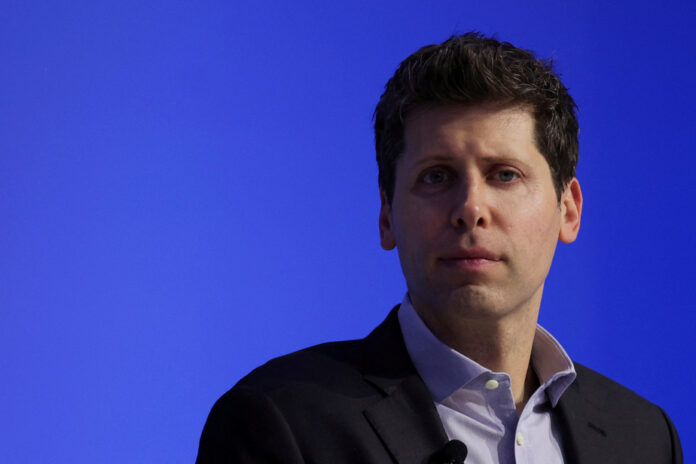(Paris) It only took a few days for Microsoft to take OpenAI back in hand, by reinstalling Sam Altman at its head with a reshuffled board of directors, striking proof of the power of the technology giants in the face of the desire for independence of the young companies, even the most famous.
Microsoft CEO Satya Nadella played a masterstroke on Monday by announcing to hire Sam Altman, who had just been ousted from OpenAI, the artificial intelligence (AI) nugget behind the ChatGPT software.
The organization’s board of directors obviously thought it could free itself from the IT giant which was its partner, which it had not even informed of this dismissal.
Serious error, according to analysts. The days when an engineer in a garage could build a global giant alone, like Steve Jobs and Bill Gates, seem to be over.
For two days, Microsoft, which is banking heavily on the sale of OpenAI products to relaunch itself, has been reminding us who holds the power. In an interview Tuesday evening with star journalist Kara Swisher, Satya Nadella was very clear: “Microsoft has all the rights.”
“There is no OpenAI without the massive support of Microsoft. We love their independence, but… we have full ownership rights. If, tomorrow, OpenAI disappears, none of our customers should worry, we have all the rights to continue innovations and not just distribute them. Everything we do in partnership with OpenAI, we can do ourselves. We have IT, data, people. We have everything. We are self-sufficient” in AI, he listed.
And to warn that if Sam Altman returned to the head of the company, they “[would] ensure that [they would] never return to such a situation, where [they would have] such surprises”, assuring that their “ interests were strong.” “Like I said, we have all the rights,” he insisted.
“That’s what the OpenAI board didn’t understand. It’s stupid to think that a company with a little technology can make all the difference,” he said, still smiling.
All analysts agree: Microsoft finds itself in a much stronger position than last week vis-à-vis OpenAI, with which its relationship seemed vague, without knowing which one depended on the other.
In seven years, the American giant has in fact injected billions of dollars (10 to 13 billion, according to the press), largely in the form of credits to use its supercomputers. Then began to market OpenAI products, including ChatGPT, by integrating them into its software (Word, Excel, its Bing search engine, Outlook, etc.).
Microsoft even owns a minority share of the commercial arm of OpenAI, of an unknown amount – 49% according to press reports. But the group did not have a seat on the board of directors of the non-profit organization that oversees the structure, an unusual situation.
By marketing ChatGPT in its own software, Microsoft has actually become so powerful that it competes with its own partner, bound by an exclusive long-term contract.
Result: OpenAI is still far from making a profit, while Microsoft saw revenues from its Azure cloud jump by almost 30% in the third quarter.
Technically, OpenAI also risks finding itself dependent on Azure, the server network on which it is entirely hosted.
“With the return of Sam Altman and this board of directors, it is Microsoft who will own OpenAI,” said Dan Ives, of the Wedbush Securities fund, in an interview.
“The board of directors gave the impression of eight-year-olds playing chess when Grandmaster Nadella arrived to win,” he analyzes.
“It’s definitely positive for Microsoft,” adds Frederick Havemeyer, of the financial group Macquarie Group: “Nadella played excellently. He will continue to have access to OpenAI’s intellectual property with a board more open to commercialization and accelerating innovation. In AI, Microsoft is leading the pack, facing other major cloud groups, Google and Amazon, who are all seeking to develop AI.















